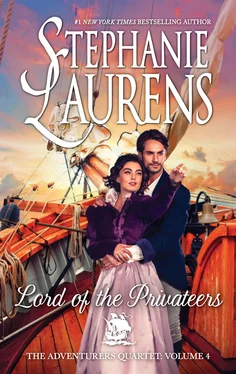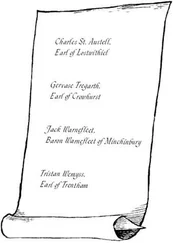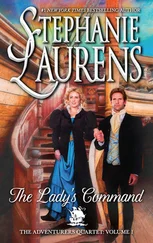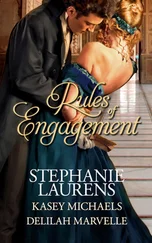“And instead, the Dey dug in his heels.”
He nodded. “Rather than report to Exmouth in person, I sent Liam Stewart—I wasn’t all that sure I could keep a civil tongue in my head, but more importantly, I couldn’t risk being seen and recognized boarding Exmouth’s ship. And with Exmouth flying the flag in such a bellicose fashion, I couldn’t risk taking The Corsair—which was masquerading as a corsair’s vessel—out of the harbor. But sending Liam turned out to be a miscalculation. Unknown to me, Exmouth had demanded and been given command over my mission. I hadn’t expected that, but it was around the time Dalziel—my previous commander—was pulling back. Whitehall assumed Exmouth would deal with the Dey without any great problem, and I was, after all, a privateer—giving an admiral command over my mission seemed appropriate to them. By sending Liam, I missed our only chance to retake the reins of the mission, at least as related to me and The Corsair. Liam was in a position to receive orders, but he wasn’t in a position to refuse orders, as I might have done.”
“So it was Exmouth’s orders that kept you in Algiers?”
“Initially. But the longer the stalemate went on, the more essential it became that I remained in position in the Dey’s court. Without the intelligence I provided, Exmouth had no way of knowing what was going on inside the walls—what was happening to the slaves, and what the Dey was planning.” He paused, then added, “It became impossible for me to pull back.”
She’d read his notes; now she had the broader context. He waited, knowing the most critical of her questions was yet to come.
Eventually, she said, “You dithered over sending me a letter. You never dither.”
He snorted. She was right. But over that... “Once I realized I was stuck, and the negotiations between the Dey and Exmouth looked set to drag on for months, I wanted to write, at least to let you know that I was unavoidably detained. But by then the blockade was increasingly tense. I couldn’t leave the city—by then, I couldn’t easily leave the palace. My men were running messages out to Exmouth. While The Corsair could slip out of the harbor—the fleet knew her and would have let her past—she wouldn’t have been able to sail in again, not without being marked as an enemy, along with all those on her.” He paused, remembering. “Several of my crew—Stewart, Bellamy, Jolley, and others—offered to take a letter and, using a rowboat, slide around the blockade in order to get the letter out to you. They would have had to go to Gibraltar. But the French were hanging off, beyond the fleet, looking to make mischief. They didn’t dare bother Exmouth, especially as he had the Dutch fleet at his back, but if the French had intercepted a letter from me, as me, to you...they would have taken great delight in informing the Dey as to whom, exactly, he was entertaining.”
“The risk was too great.”
He looked at his clasped hands. “My life, my crew’s lives, and the lives of over three thousand captives—that was what hung in the balance.” He wasn’t overstating the matter. “I had to let all notion of contacting you go.”
And he’d believed she’d loved him enough to overlook his silence.
In retrospect, that had been his biggest miscalculation, but even now, he couldn’t imagine doing anything other than what he’d done.
“Exmouth bombarded Algiers in late August.” He may as well give her the complete picture. “All the targets in the city that were hit were ones I’d identified—the armory, the magazine, the barracks. The Dey capitulated and surrendered the European slaves. But he sent out only just over a thousand—those from one set of pens. So I had to remain until we got all the Europeans released. It took until March the following year. Only once that was done was I free to drop my disguise, reboard The Corsair, and sail home.”
In what had turned into a very bitter victory.
Minutes ticked past. Neither of them spoke. The bow rose and fell; water susurrated against the sides as the prow cleaved through the waves.
She stirred. “Looking back at what happened...it was inevitable in the circumstances. It was no one’s fault.”
A few days ago, he wouldn’t have agreed, but after hearing her version of events... “Inevitable because you didn’t know why I’d stayed away.”
“Yes.” Isobel hesitated, but she’d always wondered about what had happened next. “And you didn’t try to explain. After I told you to go away, you walked away and left it at that.”
“No.” For the first time since he’d sat by her feet, he turned his head and, frowning, met her gaze. “I tried twice to see you—precisely to explain.”
She frowned back. “When?”
“The first time was two days after. It took me that long to...convince myself I had to speak to you.” He faced forward. “That I needed to make you understand.” He paused, then said, “I was met at the door by one of your older cousins. She told me in no uncertain terms that you didn’t want to see me.”
A chill touched her heart. In a low voice, she said, “I never knew you’d come.”
He looked down at his clasped hands. “I thought perhaps you were still in a snit—I tried again a week later. Another cousin turned me away with a flea in my ear.”
She looked at Duncan, sitting cross-legged beside Jolley and busily knotting rope. “They were trying to protect me—they knew about Duncan.”
A shudder ran through Royd’s large frame. She glanced at him; he was staring at his linked hands. His fingers were gripping hard, then abruptly they eased. In a low, almost tortured voice, he said, “I’d been the central cog in a long and difficult mission—I’d saved three thousand lives and got away with my crew and myself unharmed. I was...a hero by anyone’s standards, yet you didn’t want to know. That’s how I saw it.”
His chest swelled.
Her gaze locked on his profile, she didn’t expect him to say more, yet she waited, breath bated...
“I was so damned hurt! No, worse—it felt like a wound, a stab wound more deadly than any I’d ever taken.” His voice was raw, his tone harsh. “You were the only one I’d ever let so close—you were the only one who could ever have hurt me like that. And you did.”
The sounds of the sea—of the wind, the waves, the sails, and the gulls—surrounded them and held them in a cocoon of remembered pain.
Then he drew a huge breath and, raising his head, exhaled. “So yes, I walked away. From you, from us. From everything we’d been to each other.” More evenly, he stated, “There was no other way for me to go on.”
She didn’t need to think to know that everything he’d said had been the literal truth. His expression might be unreadable, impenetrable, but this was Royd; she’d always been attuned to his moods, his emotions. His feelings rippled over her awareness; she sensed them in the same way a blind person used touch to read.
“I thought then,” he went on, once again gazing at his clasped hands, “that while I’d been away fighting for king and country, you’d fallen out of love with me. That you’d changed your mind. That whatever had been between us, it hadn’t been love, the sort that never died—that that hadn’t been a part of our equation at all.” He lifted one shoulder. “What else was I to think?”
Rocked by the intensity of his feelings—she’d forgotten how powerful his emotions were—she felt as if, once again, she was reeling.
Then he turned his head and looked at her. The unshielded emotions in his gray gaze sliced effortlessly through her defenses; they might as well not have been there. Then he said, his tone hard but even, “You didn’t fight for us, either.”
Читать дальше

![Стефани Лоуренс - Капитан «Корсара» [Lord of the Privateers]](/books/26539/stefani-lourens-kapitan-korsara-lord-of-the-pri-thumb.webp)










